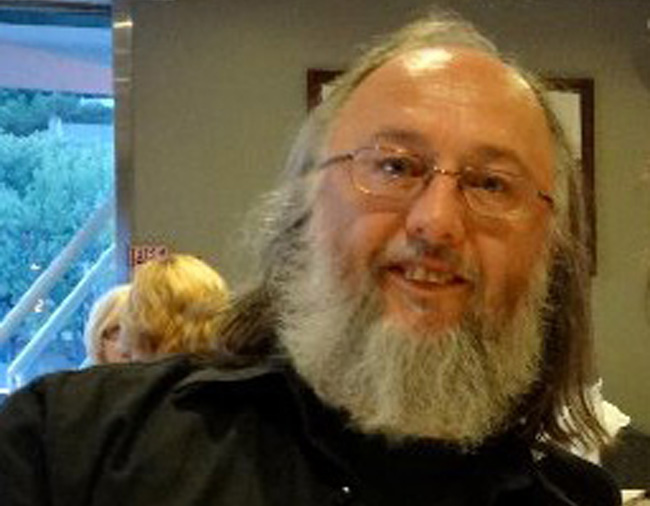O Canada: It’s not everyone’s ‘native land’

By Dr. David Shanahan
Soon we’ll be celebrating Canada Day and revelling in the fun and frolics.
Canadians have the privilege of living in a land that can be celebrated with a relatively clear conscience. No military dictatorship, no censorship of the media or speech, an open democracy (albeit often taken for granted by non-voters), and so many other positives that could be listed.
Perhaps the most obvious sign of Canada’s advantages over many other countries is the large number of people who want to move here. I have something of an advantage, too, as I am one of those who chose to make Canada my home, a place to raise my children and build a life. This gives me a sense of perspective about the place, and also causes me a few headaches at times.
For example, that line in O Canada about “home and native land”: that is a real brainteaser. This is certainly not my native land: I wasn’t born here. It may be my home, but it can never be my homeland. This may seem trivial to some, but to many immigrants it is something that gives them pause when singing those words. Canadians can often forget that immigrants are also emigrants, and days like Canada Day can also be a reminder of what has been left behind.
It must be even more difficult for those who can claim Canada as their home and native land: those who can trace their ancestry back to a time before there even was a Canada. June 21 was Aboriginal Awareness Day, although I would imagine that passed unnoticed by most Canadians. That is another reason why Canadians may only have a relatively clear conscience on July 1.
The treatment of indigenous peoples in Canada is probably the biggest stain on the country’s character. Does that seem harsh? Think, for a moment, about the national, and international, uproar recently when terrorists kidnapped those 200 girls in Nigeria. Canadians were, rightly and properly, angered by such an act, and they joined in a major protest. The Facebook page set up to register this anger, Bring Back Our Girls, has more than 250,000 likes.
Yet in Canada there are almost 2,000 aboriginal women who have gone missing in recent years; believed to have been abducted and possibly killed. Ten times the number of abducted people in Nigeria; but has there been ten times the uproar and public outrage here about the missing aboriginal women? No, and why not? Is it because they are Indians, or possibly less important if some of them were involved in the sex trade?
This country has been singled out by the United Nations for its treatment of aboriginal people. We send billions of dollars around the world to feed and clothe and educate children abroad, while communities in the Canadian North suffer hunger because of incredibly high food prices. How much food could have been airlifted to Nunavut or the Northwest Territories for what it cost to fly military jets to Europe in case Russia invaded Ukraine? We support initiatives internationally to bring an end to all kinds of social ills, but cut funding to indigenous organizations at home doing the same work among Canadians. You should have practiced the latter, without neglecting the former.
As we celebrate Canada Day, it would be good to remember that the history of this country would have been much different had the First Nations resisted European settlement, instead of co-operating and opening their lands to refugees after the American War of Independence. This country is built on treaties, treaties which have been ignored, neglected or broken by successive Canadian governments.
Premier Kathleen Wynne issued a statement on Aboriginal Awareness Day: “Ontario is home to more than 300,000 First Nations, Inuit and Métis people, and the Aboriginal population is one of the fastest-growing and youngest demographics. Aboriginal youth are integral to Ontario’s future. We will ensure that all young people in this province have access to the same opportunities, no matter where they live”.
This growing population has been incredibly patient for many years, bearing with the discrimination and unfairness of the treatment they have received. I only hope Kathleen Wynne means what she said and stops using First Nations as political fodder in disputes with the federal Government. I have grave doubts that Stephen Harper is capable of vision and fairness.
How loud would the international condemnation be if Canada passed a Jewish Act, or an Irish Act, or a French Act? Yet we have had an Indian Act since at least 1876 that has been used to separate native people from the wider society. It has been used to criminalize traditional cultural activities, deny people the right to hire legal representation, confine them to restricted areas and removed any control over their socio-economic and financial affairs.
Imagine if we did that to any ethnic or religious group in Canada, this land of multiculturalism? The Indian Act has created a dreadful situation: it is still in force.
Canada is, without question, one of the greatest countries in the world. I know: I chose to live here. I appreciate every advantage, every opportunity Canada has given me – opportunities I would not have had otherwise.
But almost thirty years of working with aboriginal people in Canada has taught me that there is still one area at least of Canadian endeavour that has yet to bear fruit. There is one part of our shared story that needs to be told, accepted, and repented of, in practical, genuine and generous change.
Dr. David Shanahan has worked on First Nations land claims and treaty issues for the past 25 years.


